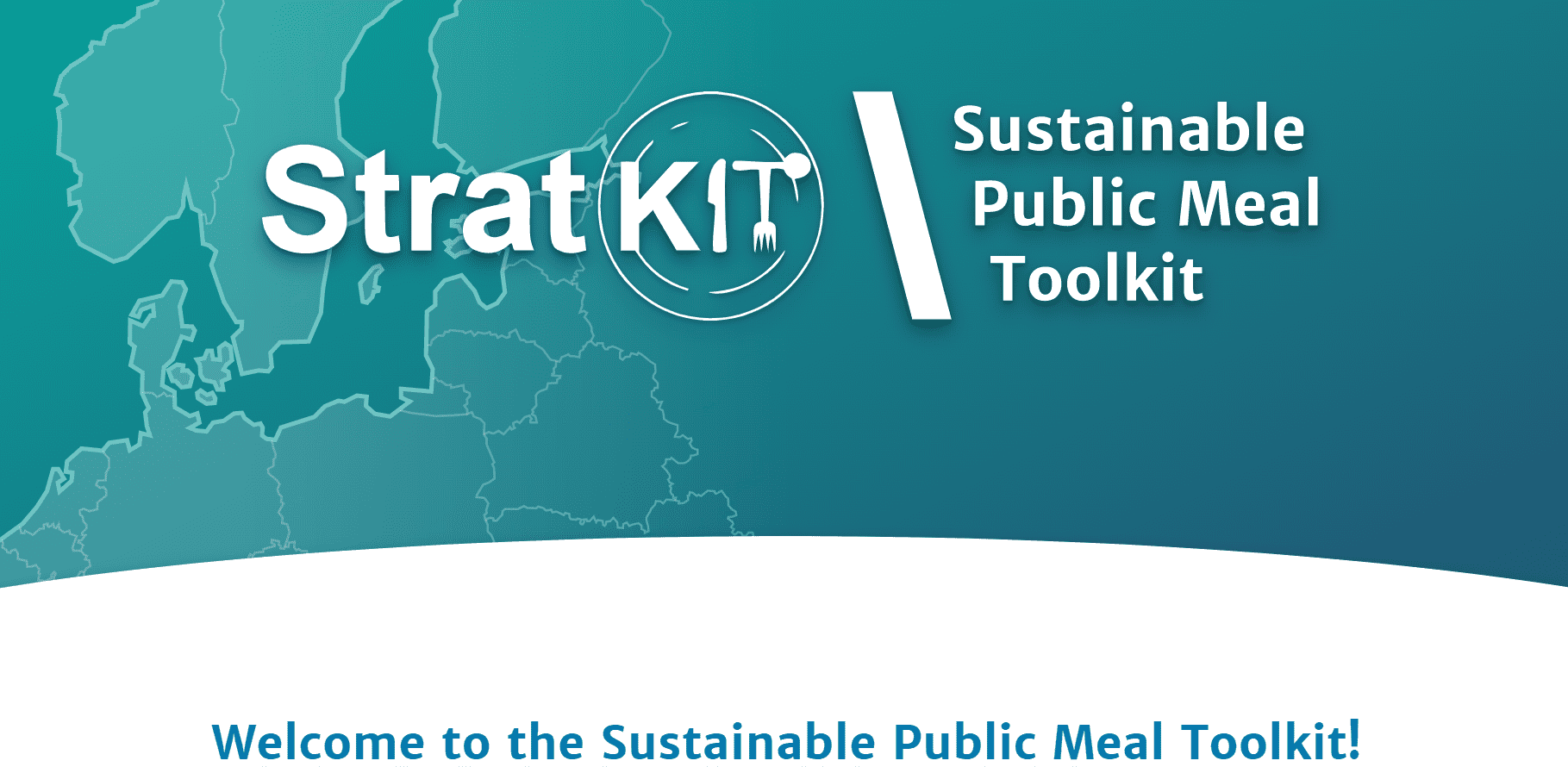StratKIT
Public authorities have a large purchasing power and have the ability to give clear signals to the market towards green growth and circular economy. However, public procurement is a complex task and good practices in the Baltic Sea region are mostly isolated. The public catering sector looks for increasing its capacity to act as innovation driver and boost local and regional economy through the collaboration with SMEs.
StratKIT presented concrete tools
StratKIT brought together public authorities, catering service providers and researchers to jointly address this challenge. The project used the so-called tree framework model offering a modifiable visualisation of the national situations. It was constructed in close cooperation with relevant stakeholders in six countries to display how the catering service is embedded in the regulations, business administration, and actual operations. With the help of this method and within the strong network of different stakeholders from different regions, the project managed to develop a needs-based practical toolkit and an online open knowledge platform for sustainable public catering.
Budgets
in numbers
-
2.05MillionTotal
-
1.44MillionErdf
-
0.18MillionEni + Russia
-
0.00MillionNorway
Achievements
Outstanding network of cooperation
Hundreds of public meal stakeholders (administrators, procurers and caterers) from Denmark, Estonia, Finland, Germany, Poland and Russia were cooperating within the StratKIT project. The project started with mapping the state-of-the-art of sustainability in catering services in the project countries and beyond. It analysed the local conditions and specific factors enabling or limiting the progress towards increasingly sustainable procurement and catering services. Within a joint learning, experience exchange, and innovation process, the partners of the project gradually developed important expertise to support the service providers and adjust the procurement process for more sustainable public meals.
External recognition
The StratKIT project caught the attention of a wide range of stakeholders outside the consortium. The success of the project can be measured in the fact that the World Wide Fund for Nature (WWF) has asked permission to share the Online Toolkit on their pages (spring 2022). In addition, the initiators of quite a large Best-Re-Map Joint EU Action have been highly interested in the outcomes. The Joint BSR Report for sustainable public procurement and catering services, published within the project, received its recognition by being cited in a scientific paper.
Institutionalised knowledge
The expertise of various institutions dealing with public meals has been significantly enhanced over the three years. Many of the published tools directly advise how to improve the governance structures and organisational set-up in order to support sustainable public meals. For example, the getaway "Strategies for Change" includes tools specifically designed for decision-makers, customers, and suppliers who intend to make changes in the process of choosing and providing public meals.
The transnational cooperation within and outside the project partnership has inspired not only the involved partner municipalities, but also their neighbours.
Outputs
Sustainability Toolkit

Project Stories
Partners
University of Helsinki
- TownSeinäjoki
- RegionEtelä-Pohjanmaa
- CountryFinland
- RepresentativeLeena Viitaharju
- Phone
- E-Mail
- Web
Stockholm Environment Institute Tallinn Centre
- TownTallinn
- RegionPõhja-Eesti
- CountryEstonia
- RepresentativeHarri Moora
- Phone
- E-Mail
- Web
agrathaer
- TownMüncheberg
- RegionMärkisch-Oderland
- CountryGermany
- RepresentativeRegine Berges
- Phone
- E-Mail
- Web
IFAU Institute for Food Studies and Agroindustrial Development
- TownHoersholm
- RegionNordsjælland
- CountryDenmark
- RepresentativeKaren Hamann
- Phone
- E-Mail
- Web
Municipality of Aarhus
- TownAarhus
- RegionØstjylland
- CountryDenmark
- RepresentativeBente Kramer Møller
- Phone
- E-Mail
- Web
Municipality of Rybnik
- TownRybnik
- RegionRybnicki
- CountryPoland
- RepresentativeMateusz Motyka
- Phone
- E-Mail
- Web
Tallinn City Government
- TownTallinn
- RegionPõhja-Eesti
- CountryEstonia
- RepresentativeKaisa-Leena Liim
- Phone
- E-Mail
- Web
Finnish Professional Catering Association
- TownKirkkonummi
- RegionHelsinki-Uusimaa
- CountryFinland
- RepresentativeMarjut Huhtala
- Phone
- E-Mail
- Web
Baltic restaurants Estonia
- TownTallinn
- RegionPõhja-Eesti
- CountryEstonia
- RepresentativeTiiu Endrikson
- Phone
- E-Mail
- Web
Central Denmark EU-Office
- TownBrussels
- RegionØstjylland
- CountryDenmark
- RepresentativeSigne Waltoft Madsen
- Phone
- E-Mail
- Web
WITHDRAWAL (01/01/2020) Estonian Regional and Local Development Agency
- TownTallinn
- RegionPõhja-Eesti
- CountryEstonia
- RepresentativeReljo Saarepera
- Phone
- E-Mail
- Web
The Herzen State Pedagogical University of Russia
- TownSt. Petersburg
- RegionCity of St. Petersburg
- Country
- RepresentativeEkaterina Filippova
- Phone
- E-Mail
- Web
Council of municipalities of Sankt Petersburg
- TownSt. Petersburg
- RegionCity of St. Petersburg
- Country
- RepresentativeIuliia Slav
- Phone
- E-Mail
- Web
Warsaw University of Life Sciences
- TownWarsaw
- RegionMiasto Warszawa
- CountryPoland
- RepresentativeRenata Kazimierczak
- Phone
- E-Mail
- Web
-
Project managerLeena ViitaharjuUniversity of Helsinki, Ruralia Institute
-
Legal representativeRitva ToivonenUniversity of Helsinki
-
Financial managerLeena ViitaharjuUniversity of Helsinki, Ruralia Institute
-
Communication managerUrszula Ala-KarviaUniversity of Helsinki, Ruralia Institute



